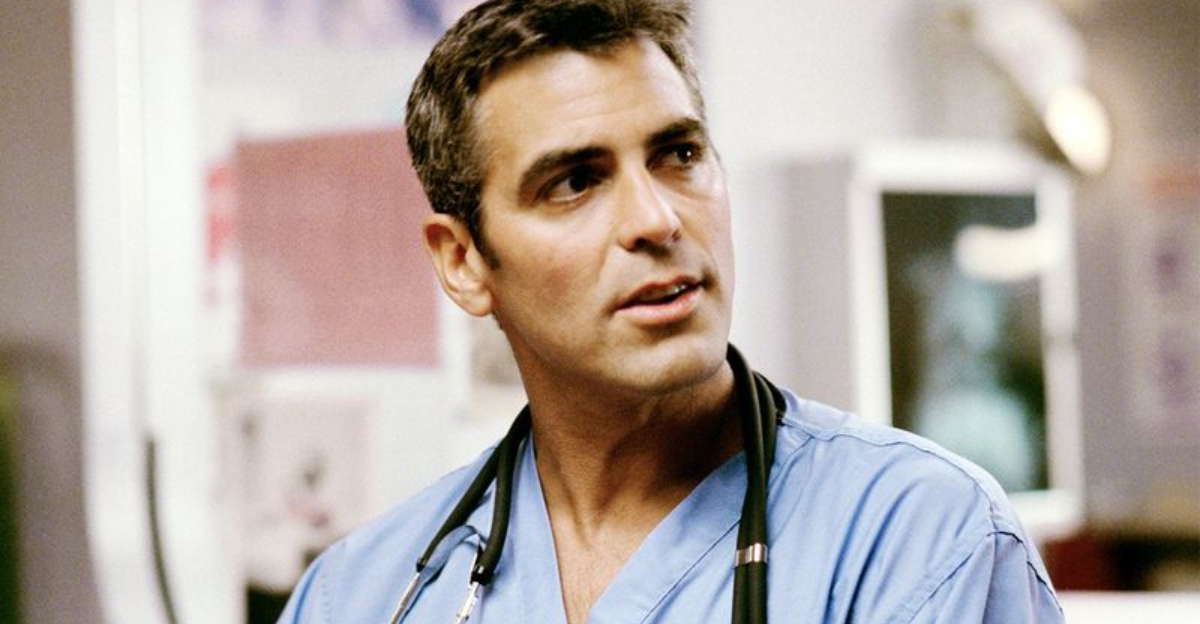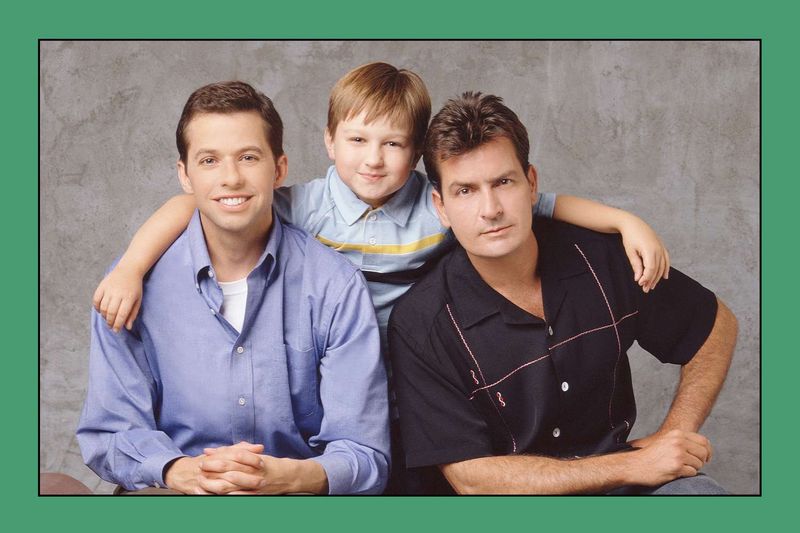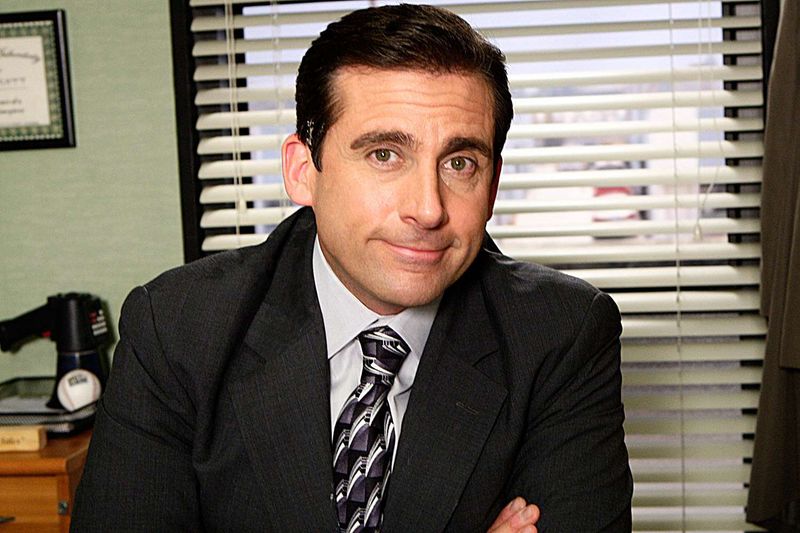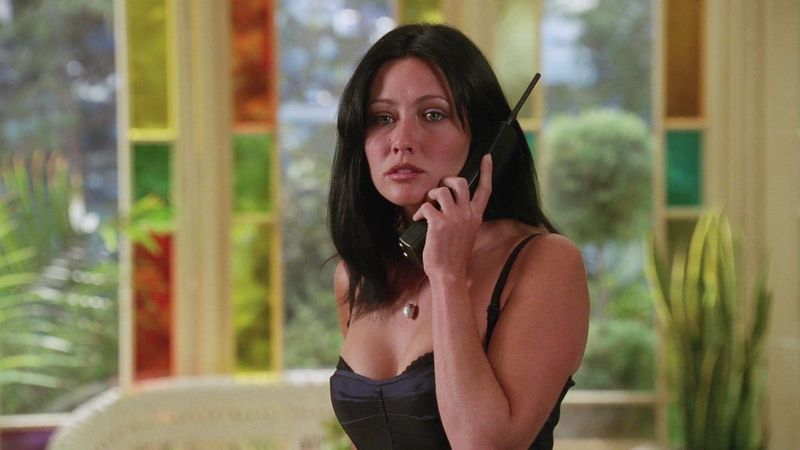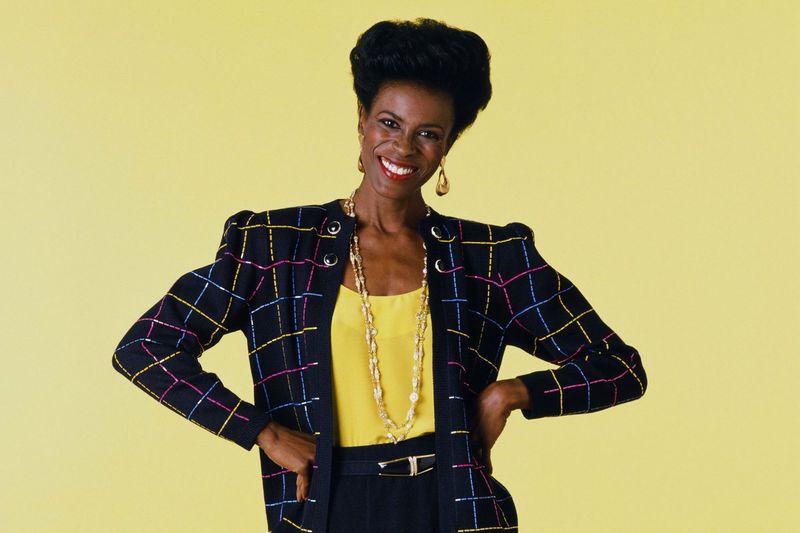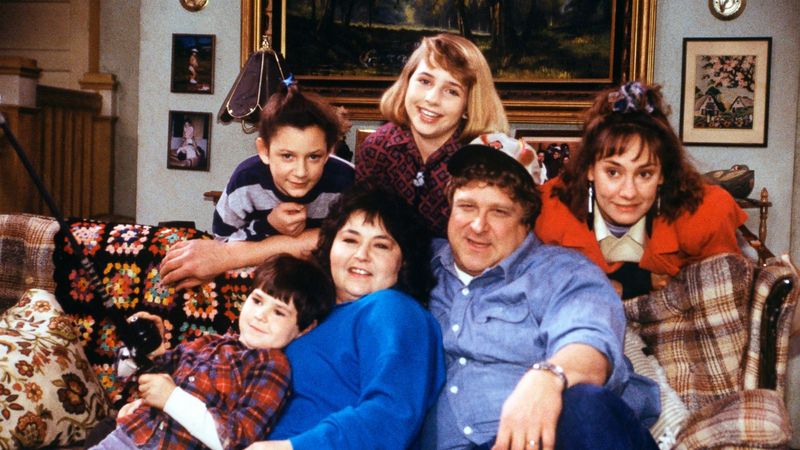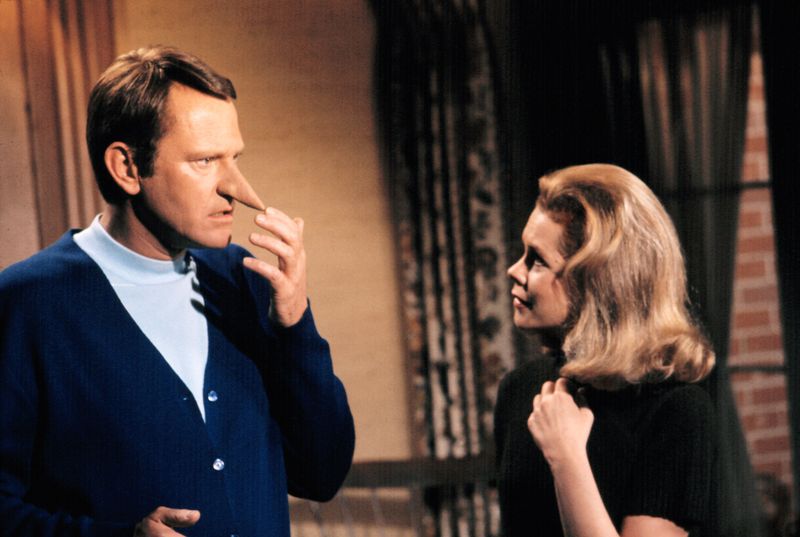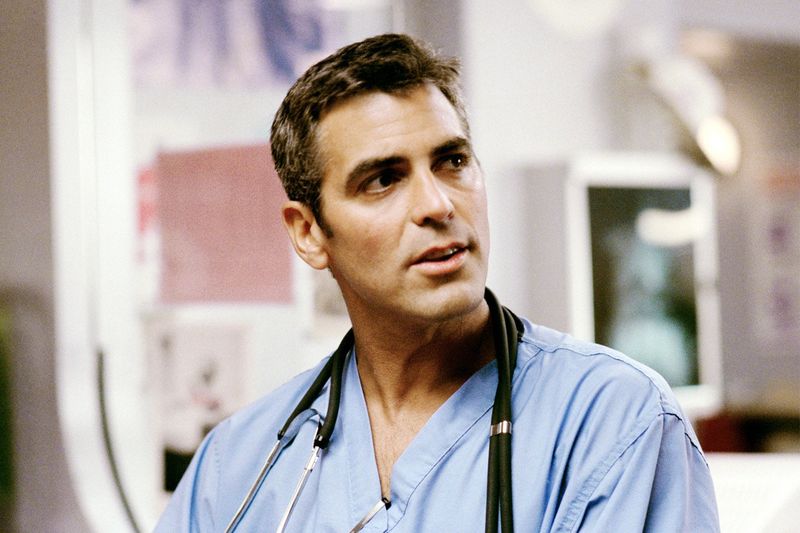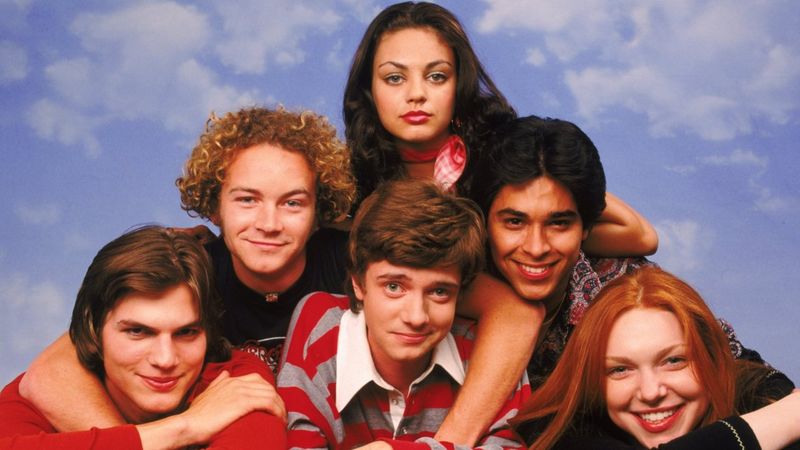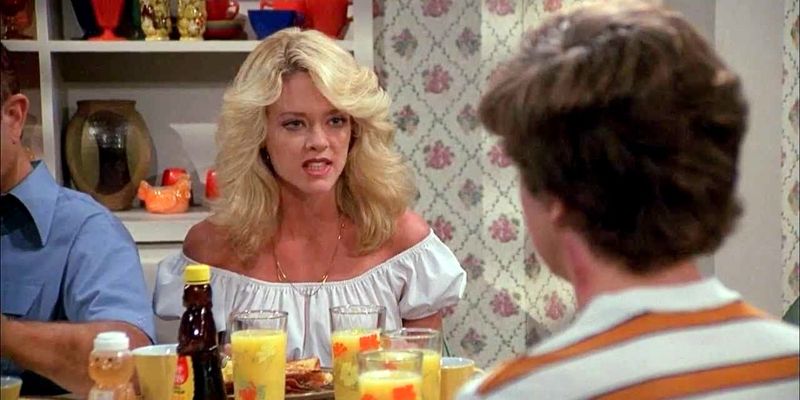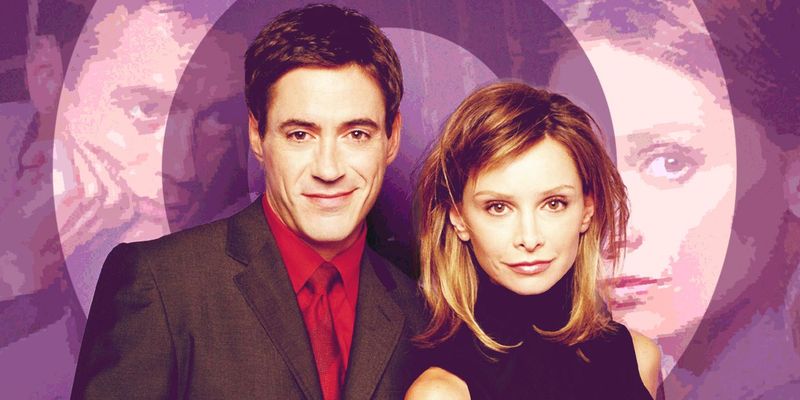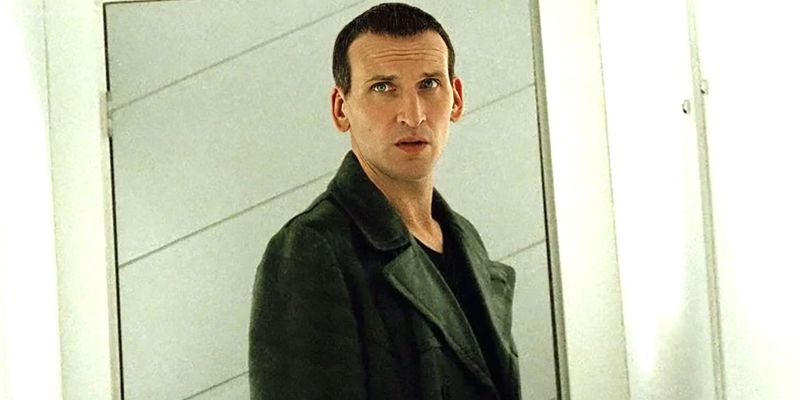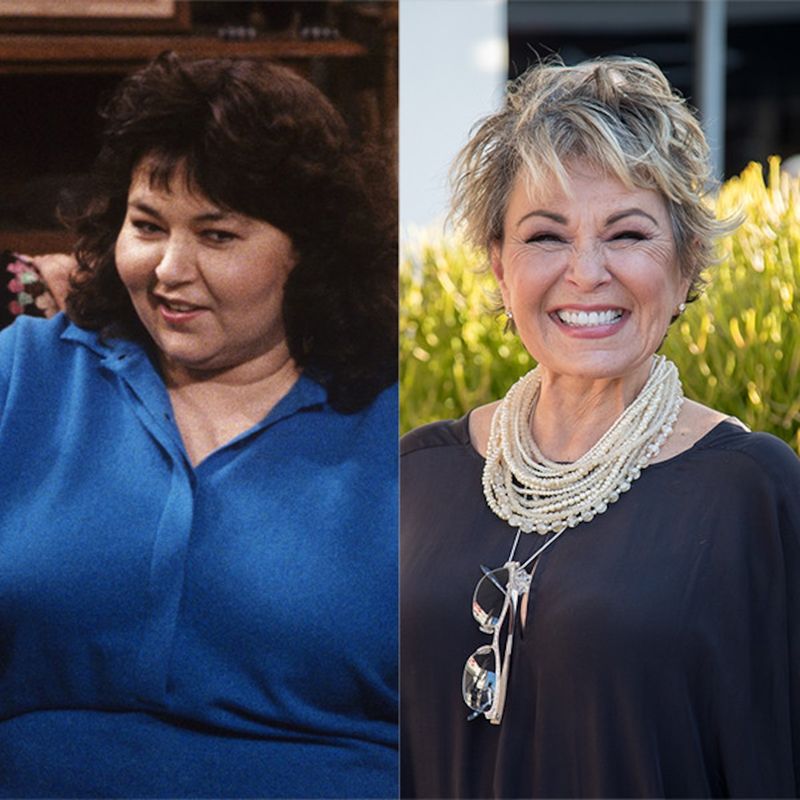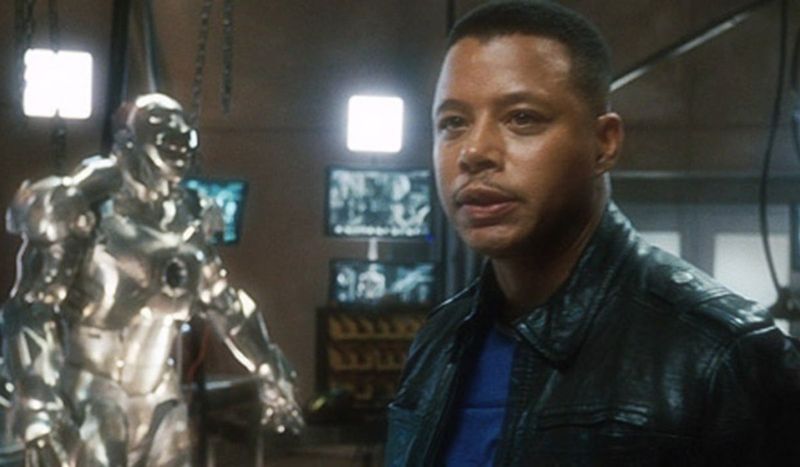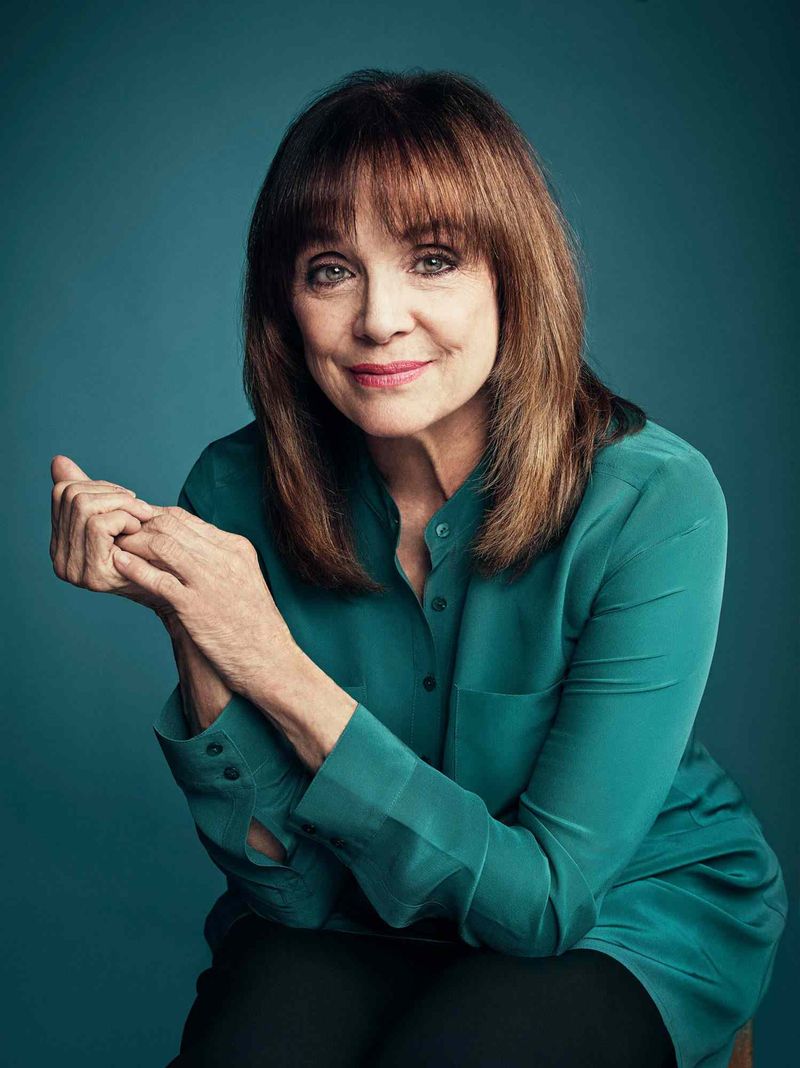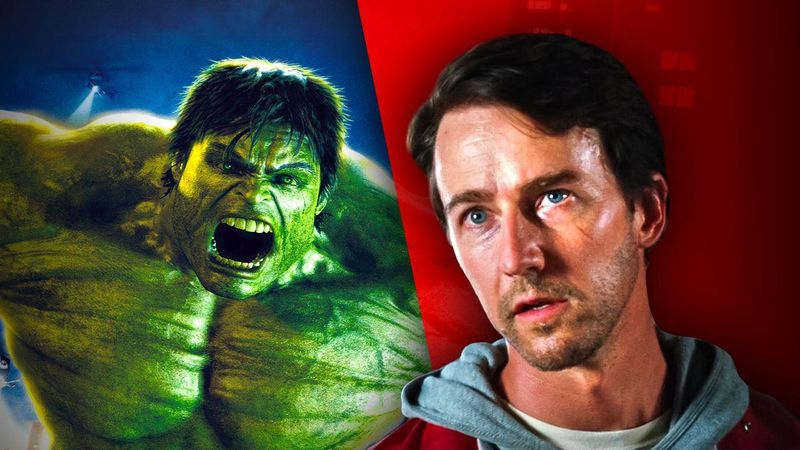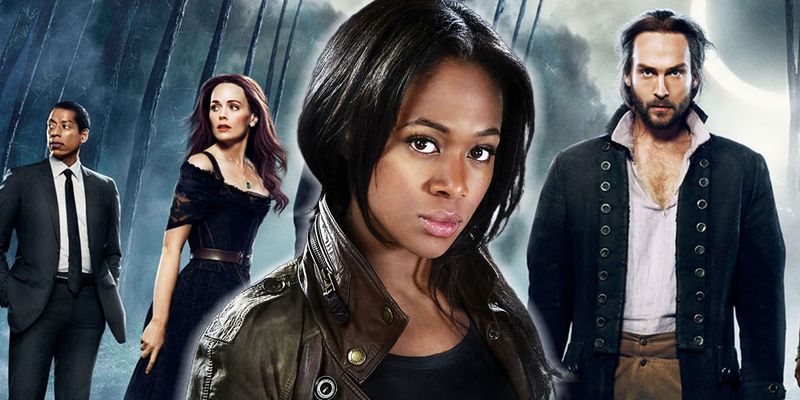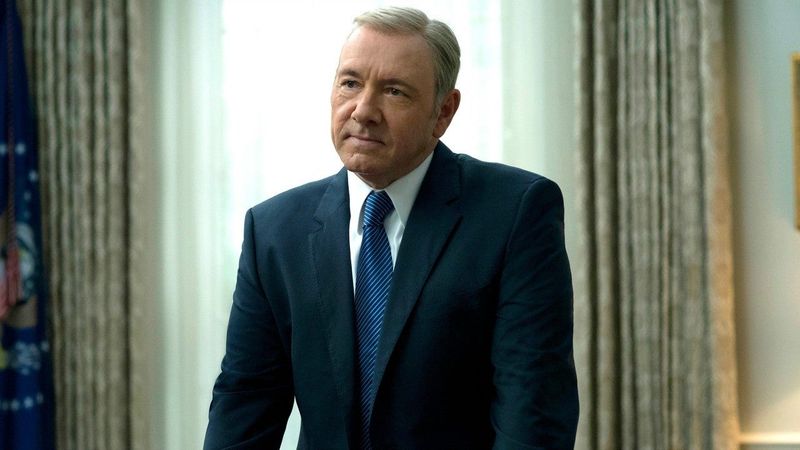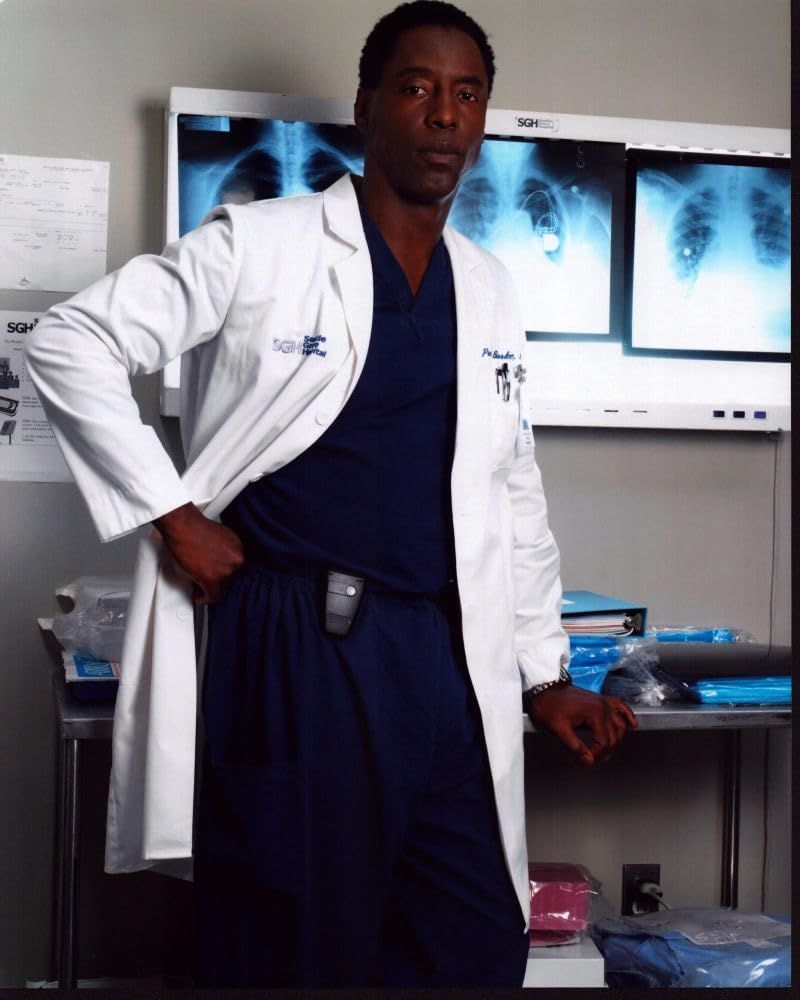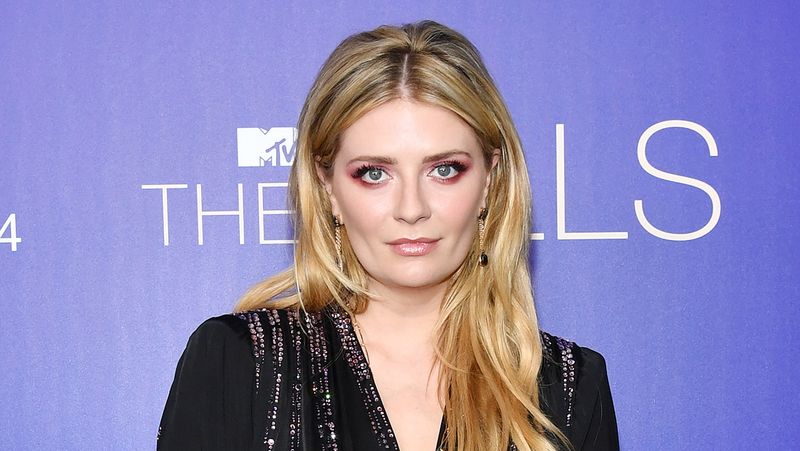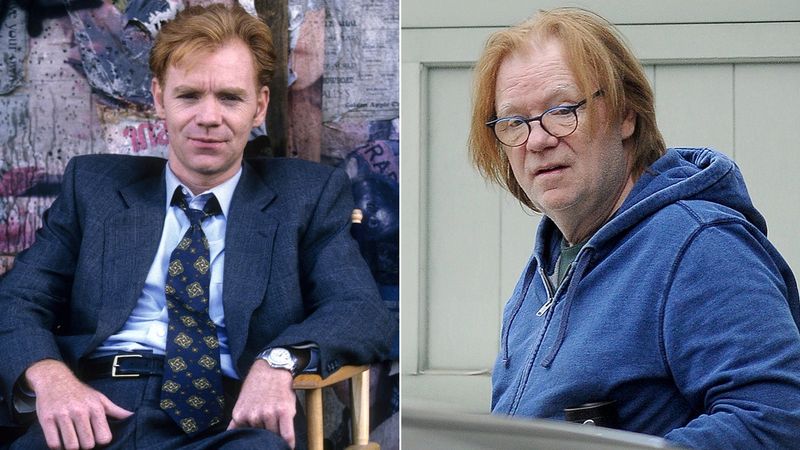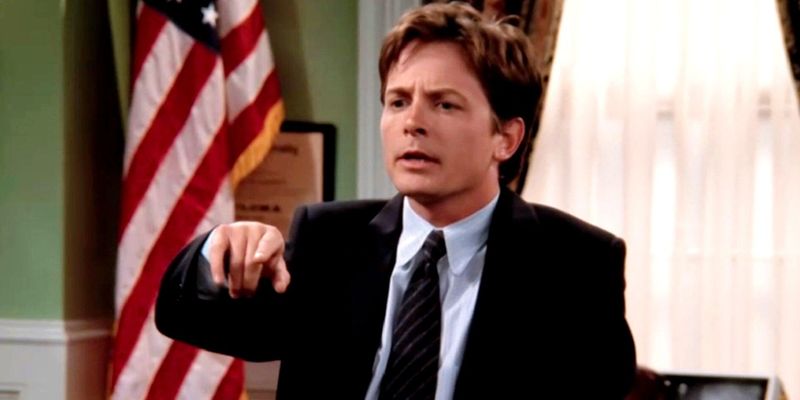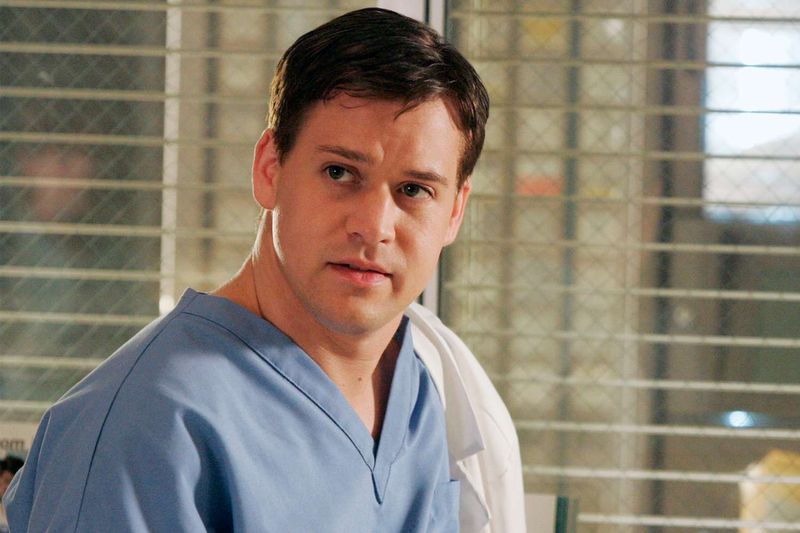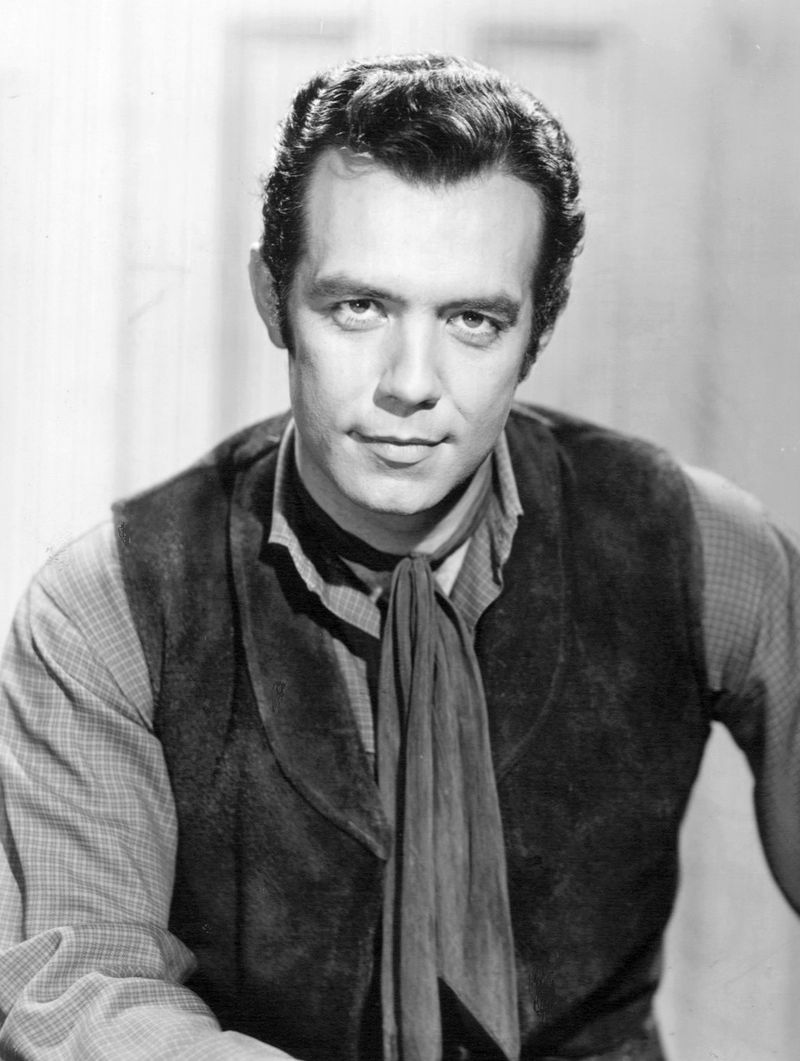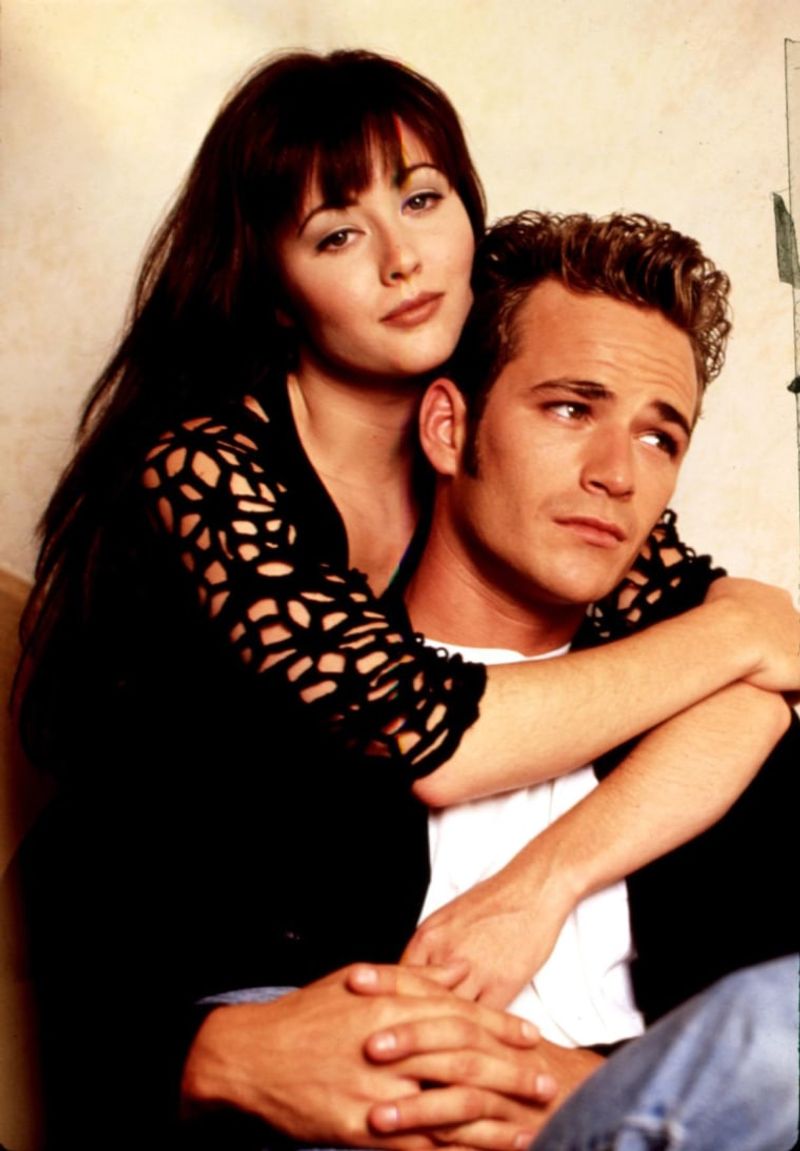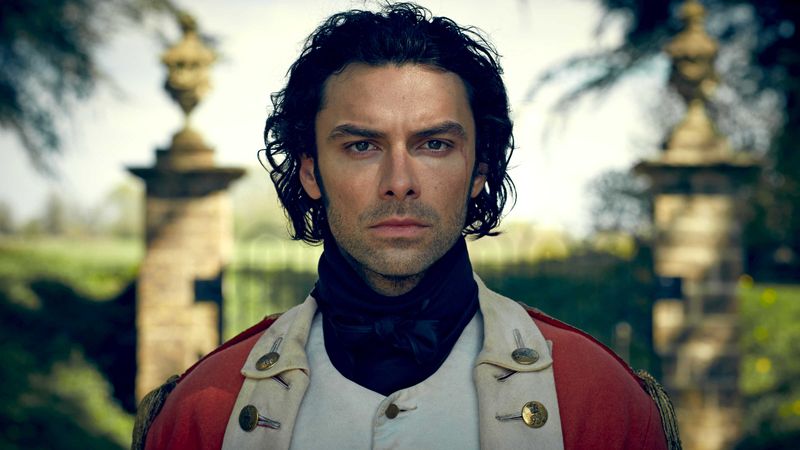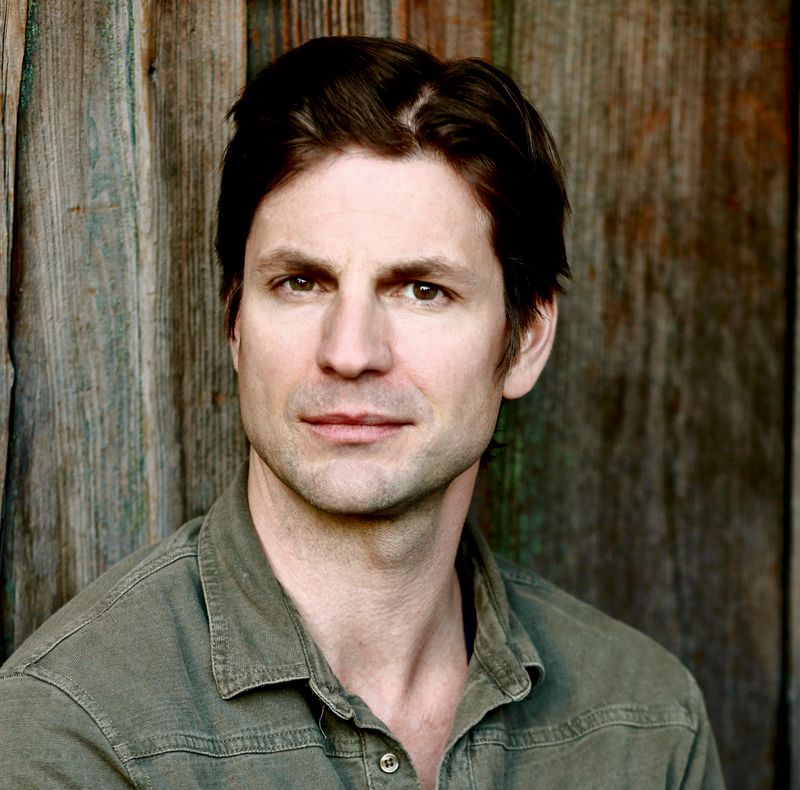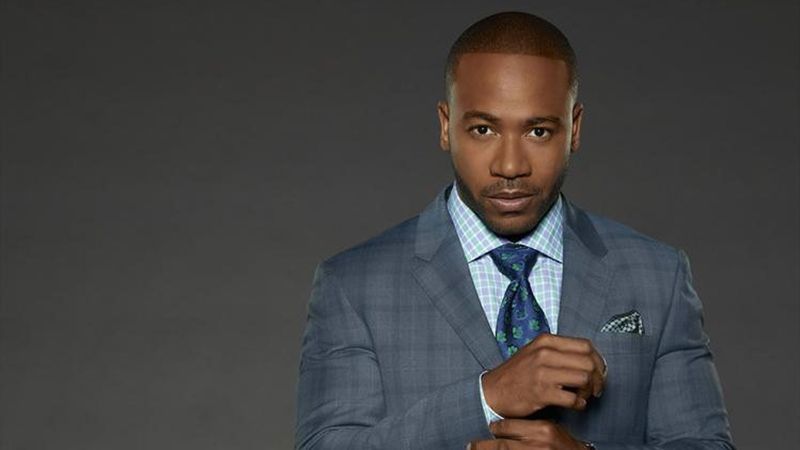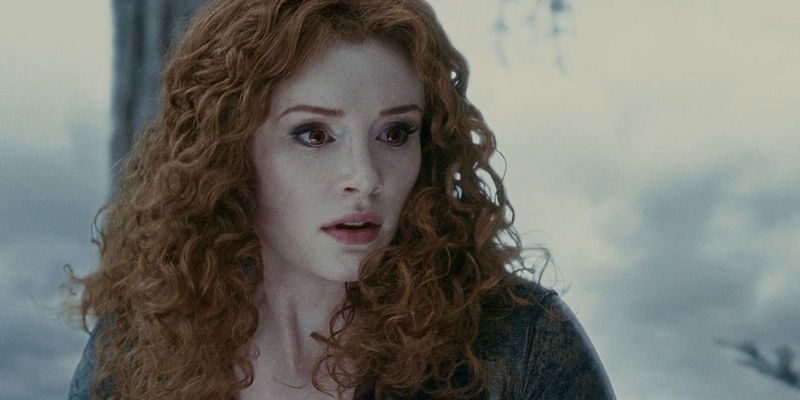Television has seen numerous instances where actors were replaced, fired, or recast, often resulting in surprising and memorable shifts in beloved TV shows.
This blog explores 30 notable cases, offering insights into the reasons and impacts behind these changes.
From high-profile feuds to creative differences, each story offers a unique glimpse into the behind-the-scenes dynamics of television production.
Let’s explore these intriguing stories and the transformations they brought to the small screen.
1. Charlie Sheen in Two and a Half Men
Charlie Sheen’s departure from “Two and a Half Men” was one of the most publicized exits in television history. Following a tumultuous period marked by controversial interviews and erratic behavior, Sheen was fired from the show in 2011.
The actor’s personal issues clashed with the show’s production, leading to creative differences that could not be reconciled.
As a result, Sheen’s character, Charlie Harper, was written out and replaced by Ashton Kutcher, who played a new character named Walden Schmidt.
The change brought a fresh dynamic to the show, though fans were divided over the new direction. Despite the controversy, the series continued for four more seasons.
2. Steve Carell in The Office
Steve Carell’s exit from “The Office” left fans heartbroken as his character, Michael Scott, was a beloved part of the show.
Carell left the series in its seventh season to pursue other career opportunities, including a focus on film roles. His departure was amicable, with no publicized disputes or controversies.
The absence of Carell’s iconic character challenged the show to fill the void, leading to a series of new managerial characters played by actors like James Spader and Catherine Tate.
While the series managed to continue for two more seasons, many fans and critics felt that “The Office” was never quite the same after Carell’s departure.
3. Shannen Doherty in Charmed
Shannen Doherty’s departure from “Charmed” after three seasons was a shock to fans of the supernatural drama. Known for portraying Prue Halliwell, she left the show amid reports of tension with co-star Alyssa Milano and the show’s producers.
Her character’s death was a pivotal moment, making way for Rose McGowan to join the cast as Paige Matthews, a long-lost sister. The change was embraced by some fans who enjoyed the new character dynamics, while others mourned the loss of Prue.
“Charmed” continued to thrive, running for five more seasons with McGowan as a key figure.
4. Aunt Viv in The Fresh Prince of Bel-Air
Janet Hubert’s role as Aunt Viv in “The Fresh Prince of Bel-Air” was recast after the third season, resulting in a notable change in the show’s dynamic. Reports suggested that creative differences and conflicts with star Will Smith contributed to her departure.
Daphne Maxwell Reid took over the role, bringing a different energy and approach to the character. While the new Aunt Viv was accepted by many, the transition was evident and sparked discussions among fans about the shift in tone.
Despite the change, “The Fresh Prince of Bel-Air” continued to remain popular and maintain its status as a beloved sitcom.
5. Becky Conner in Roseanne
The character of Becky Conner on “Roseanne” was notably played by two different actresses, Lecy Goranson and Sarah Chalke. Goranson originated the role but left the show to attend college.
Sarah Chalke was brought in as her replacement, offering a different but appreciated take on Becky. Later, Goranson returned, and the show humorously acknowledged the casting changes.
Fans enjoyed both versions of Becky, with each actress bringing her own charm to the character. This recasting became an interesting part of the show’s legacy, illustrating the flexibility and creativity of the sitcom format.
6. Dick Sargent in Bewitched
Dick Sargent’s casting as Darrin Stephens in “Bewitched” was a notable recast during the show’s run. Originally played by Dick York, the character’s replacement was due to York’s ongoing health issues, which made it difficult for him to continue.
Sargent stepped into the role with a different style, marking a shift in the show’s dynamic. Fans of “Bewitched” had mixed reactions, with some missing York’s portrayal, while others appreciated Sargent’s fresh interpretation.
Despite the change, “Bewitched” continued to enchant audiences, maintaining its popularity and charm as a classic television series.
7. George Clooney in ER
George Clooney’s departure from “ER” marked a significant moment in the show’s history, as his character, Dr. Doug Ross, was a central figure. Clooney left in the fifth season to pursue a burgeoning film career, a move that greatly impacted the series.
His exit was handled with a compelling storyline that offered closure to his character’s arc. Despite his absence, “ER” continued to thrive, lasting an impressive 15 seasons.
Clooney’s departure highlighted the show’s strength in storytelling and ensemble performance, allowing it to remain a staple in medical drama television even after losing one of its biggest stars.
8. Topher Grace in That ’70s Show
Topher Grace’s departure from “That ’70s Show” came as a surprise to fans, as his character, Eric Forman, was a central part of the series. Grace left after seven seasons to explore opportunities in film, including roles in major Hollywood productions.
His exit prompted changes in the show’s dynamic, with new characters introduced to fill the gap. While “That ’70s Show” continued for one more season, the absence of Eric’s quirky personality was felt.
Despite mixed reactions, the series maintained its nostalgic charm, and Grace’s decision paved the way for his successful transition to a film career.
9. Lisa Robin Kelly in That ’70s Show
Lisa Robin Kelly’s role as Laurie Forman in “That ’70s Show” was recast due to personal struggles that affected her ability to continue with the series. The character was temporarily written out before being brought back with Christina Moore in the role.
This casting change allowed the show to maintain continuity, though fans noticed the difference. The decision highlighted the challenges actors can face and the impact on long-running series.
Despite the recast, “That ’70s Show” continued to enjoy success, with Laurie’s character remaining a memorable part of the ensemble cast.
10. Robert Downey Jr. in Ally McBeal
Robert Downey Jr.’s tenure on the hit show Ally McBeal was both critically acclaimed and notably turbulent. Initially brought on to boost the show’s ratings, Downey’s portrayal of Larry Paul quickly became a fan favorite.
Unfortunately, his struggles with substance abuse led to multiple arrests, forcing the producers to write his character out.
This abrupt change left audiences disappointed and the show’s storyline in disarray. Despite the challenges, Downey’s career later experienced a massive resurgence, proving that even after setbacks, success is still attainable.
11. Christopher Eccleston in Doctor Who
Christopher Eccleston’s departure from “Doctor Who” after just one season as the Ninth Doctor was a surprise to fans. Citing creative differences and challenges with the show’s production environment, Eccleston chose to leave the iconic role.
His exit paved the way for David Tennant to take over as the Tenth Doctor, bringing a new energy and popularity to the series.
While Eccleston’s time as The Doctor was brief, his portrayal left a lasting impact, revitalizing the series and introducing it to a new generation of viewers. The transition showcased “Doctor Who’s” unique ability to reinvent itself through its lead character.
12. Roseanne Barr in Roseanne
Roseanne Barr’s removal from the “Roseanne” reboot in 2018 followed a controversial tweet that led to her firing by ABC. The network swiftly decided to continue the show without her, leading to the creation of “The Conners.”
This significant change reshaped the series, focusing on the remaining family members and addressing the absence of Roseanne’s character. While the transition was challenging, “The Conners” managed to find its footing and develop a unique identity.
This incident highlighted the complexities of handling sensitive situations in the entertainment industry and the potential for a show to continue evolving even after major changes.
13. Terence Howard in Iron Man
Terence Howard’s exit from the Marvel Cinematic Universe after “Iron Man” was a notable recasting that surprised many fans. Initially cast as James “Rhodey” Rhodes, Howard’s departure was reportedly due to contract disputes and differences over salary negotiations.
Don Cheadle was brought in to replace him, stepping into the role with a fresh take that was well-received by audiences. This change marked an early but significant shift in the MCU, illustrating the complexities of franchise filmmaking.
Despite the recasting, the character of Rhodey continued to thrive, becoming an integral part of the ever-expanding Marvel universe.
14. Valerie Harper in Valerie
Valerie Harper’s departure from her own sitcom “Valerie” was a complex situation involving contractual disputes. After a contentious period, Harper was fired from the show, and her character was killed off.
The series was rebranded as “The Hogan Family,” with Sandy Duncan joining the cast. This transition was a bold move that succeeded in maintaining the show’s popularity despite the absence of its original star.
Harper’s exit demonstrated the challenges of navigating creative and business differences within the television industry, while the show’s ability to endure illustrated the resilience and adaptability of television storytelling.
15. Edward Norton in The Incredible Hulk
Edward Norton’s role as Bruce Banner in “The Incredible Hulk” was recast after reported creative differences with Marvel Studios. Norton’s desire for more control over the film’s direction clashed with the studio’s vision.
Mark Ruffalo was brought in to take over the role, debuting in “The Avengers” and quickly becoming a fan favorite.
This recasting marked a significant change in the Marvel Cinematic Universe, with Ruffalo’s portrayal adding depth and humor to the character.
Norton’s exit highlighted the complexities of collaborative storytelling in blockbuster filmmaking, while Ruffalo’s success underscored the potential for positive outcomes from such transitions.
16. Nicole Beharie in Sleepy Hollow
Nicole Beharie’s departure from “Sleepy Hollow” was a surprise that left fans shocked. Known for her role as Abbie Mills, Beharie’s exit at the end of the third season was reportedly due to creative differences and dissatisfaction with her character’s development.
The decision to kill off such a central character was bold and controversial, affecting the show’s dynamic and reception. While “Sleepy Hollow” continued for one more season, many viewers felt the absence of Beharie’s character deeply.
Her exit sparked discussions about diversity and representation in television, highlighting the importance of nuanced storytelling and character development.
17. Kevin Spacey in House of Cards
Kevin Spacey’s removal from “House of Cards” followed allegations of misconduct, leading to his firing by Netflix. With Spacey gone, the series had to undergo significant changes to continue without its leading actor.
The final season shifted focus to Robin Wright’s character, Claire Underwood, offering a fresh perspective and storyline. While the transition was challenging, it allowed the show to address relevant issues and explore new narrative possibilities.
Spacey’s exit illustrated the broader impact of accountability in the entertainment industry, highlighting the challenges and opportunities that arise when navigating such complex situations in high-profile productions.
18. Suzanne Somers in Three’s Company
Suzanne Somers’ departure from “Three’s Company” was a high-profile exit in the 1980s. After demanding a significant pay increase, her contract was not renewed, leading to her character, Chrissy Snow, being written out.
The show introduced new characters to fill the void, including Jenilee Harrison and Priscilla Barnes as new roommates.
While “Three’s Company” continued to enjoy success, Somers’ departure highlighted the challenges actors face in negotiating contracts and the impact these decisions can have on a series.
Her exit remains a notable example of the complex dynamics between talent and production in television history.
19. Isaiah Washington in Grey’s Anatomy
Isaiah Washington’s firing from “Grey’s Anatomy” followed reported tensions and allegations of inappropriate behavior on set. His character, Dr. Preston Burke, was written out at the end of the third season.
Washington’s departure marked a significant shift in the show’s storyline and cast dynamics. Despite the controversy, “Grey’s Anatomy” continued to thrive, illustrating its resilience and ability to evolve.
His exit served as a reminder of the importance of maintaining a respectful work environment and the potential consequences of failing to do so. The series’ enduring success underscores its strong ensemble cast and compelling storytelling.
20. Mischa Barton in The O.C.
Mischa Barton’s departure from “The O.C.” was a dramatic moment in the show’s third season. Her character, Marissa Cooper, was killed off, a decision influenced by Barton’s desire to explore new career opportunities.
This bold move significantly altered the show’s narrative, with mixed reactions from fans and critics. While Marissa’s exit allowed “The O.C.” to explore new storylines, some felt the series never fully recovered from the loss of such a pivotal character.
Barton’s departure illustrated the balance actors must find between personal aspirations and their roles, highlighting the dynamic nature of television storytelling.
21. David Caruso in NYPD Blue
David Caruso’s departure from “NYPD Blue” after just one season was a notable shift for the series. Caruso left to pursue a film career, a decision that impacted the show’s dynamic and storyline.
His character, Detective John Kelly, was written out, making way for new lead characters. While the series continued to enjoy success, Caruso’s exit serves as an example of the challenges actors face when transitioning between television and film.
“NYPD Blue’s” enduring popularity demonstrated its ability to adapt to cast changes, maintaining its status as a groundbreaking police drama in the 1990s.
22. Michael J. Fox in Spin City
Michael J. Fox’s departure from “Spin City” was driven by his diagnosis with Parkinson’s disease. Fox chose to leave the series to focus on his health and advocacy work, a decision met with admiration and support.
The show introduced Charlie Sheen as a new lead character, shifting the storyline while maintaining its comedic charm. While Fox’s presence was missed, “Spin City” continued to entertain audiences for several more seasons.
Fox’s exit highlighted the importance of prioritizing personal well-being and demonstrated the potential for a series to evolve and succeed even amid significant cast changes.
23. T.R. Knight in Grey’s Anatomy
T.R. Knight’s exit from “Grey’s Anatomy” was influenced by reported tension and dissatisfaction with his character’s development. Knight chose to leave the series after five seasons, a decision that affected the show’s ensemble dynamic.
His character, Dr. George O’Malley, was given a poignant send-off, leaving a lasting impact on fans. “Grey’s Anatomy” continued to thrive, showcasing its resilience and ability to adapt to cast changes.
Knight’s departure highlighted the complexities actors face in their careers and the importance of creative fulfillment. The series remains a testament to strong storytelling and ensemble performance.
24. Megan Fox in Transformers
Megan Fox’s departure from the “Transformers” franchise was a high-profile exit that followed controversial comments about director Michael Bay. Her character, Mikaela Banes, was written out of the third film, “Transformers: Dark of the Moon.”
The series introduced a new female lead, played by Rosie Huntington-Whiteley, maintaining its action-packed appeal. Fox’s exit highlighted the challenges of maintaining professional relationships in high-stakes productions.
Despite the change, the “Transformers” franchise continued to enjoy box office success, illustrating the flexibility and adaptability of blockbuster filmmaking. Fox’s departure remains a notable example of navigating career and industry dynamics.
25. Pernell Roberts in Bonanza
Pernell Roberts’ exit from “Bonanza” was a significant change for the classic Western series. Roberts left after six seasons, reportedly due to dissatisfaction with his character’s development and a desire for more diverse roles.
His character, Adam Cartwright, was written out, impacting the show’s family dynamic. Despite his departure, “Bonanza” continued to thrive, becoming one of the longest-running and most beloved Westerns in television history.
Roberts’ decision underscored the importance of creative fulfillment for actors and the challenges of maintaining long-term roles. “Bonanza’s” enduring success highlighted its strong storytelling and cast ensemble.
26. Shannen Doherty in Beverly Hills, 90210
Shannen Doherty’s departure from “Beverly Hills, 90210” was surrounded by reports of behind-the-scenes tension and conflicts. Her character, Brenda Walsh, was written out at the end of the fourth season.
The show introduced new characters to fill the void, continuing its portrayal of teenage life in Beverly Hills. Doherty’s exit marked a turning point in the series, with varied reactions from fans.
Her departure remains a notable example of the challenges and complexities actors face in long-running series, illustrating the impact of personal dynamics on television production. “Beverly Hills, 90210” continued to be a cultural phenomenon.
27. Aidan Turner in Poldark
Aidan Turner’s role as Ross Poldark in the BBC series “Poldark” was celebrated, but rumors of his departure circulated as the series approached its conclusion. While Turner was not fired or recast, his potential exit sparked discussions among fans.
The series’ ending provided closure for the character, leaving a lasting legacy. Turner’s portrayal was central to the show’s appeal, highlighting the impact of strong performances on a series’ success.
The speculation surrounding his departure illustrated the complexities of maintaining long-running roles and the significance of timing in concluding beloved stories. “Poldark” remains a beloved drama, cherished by its audience.
28. Gale Harold in Queer as Folk
Gale Harold’s role as Brian Kinney in “Queer as Folk” was pivotal to the show’s success. While Harold was not fired or recast, his character faced potential changes as the series developed.
The show’s continuation explored new narrative arcs, maintaining its groundbreaking portrayal of LGBTQ+ life. Harold’s performance was a cornerstone of the series, illustrating the importance of character evolution in storytelling.
The potential for change highlighted the dynamic nature of television production and the need to balance character integrity with creative growth. “Queer as Folk” remains a landmark series, celebrated for its impactful storytelling and cultural relevance.
29. Columbus Short in ‘Scandal’
Columbus Short gained fame as Harrison Wright on ‘Scandal,’ but his tenure was cut short due to personal issues off-screen. This led to his character’s abrupt exit.
The show, known for its twists, adapted to the change by refocusing storylines. Short’s departure underscored the impact of real-life situations on fictional narratives, offering a reminder of the delicate balance in maintaining a successful series.
30. Rachelle Lefevre in ‘Twilight Saga’
Rachelle Lefevre played Victoria in the first two ‘Twilight Saga’ films, but was replaced by Bryce Dallas Howard in ‘Eclipse.’ The change was reportedly due to scheduling conflicts.
Fans were quick to notice the difference, as Lefevre’s portrayal had been well-received. This recasting highlights the challenges of coordinating major film franchises, where timing and commitments can lead to unexpected changes.
